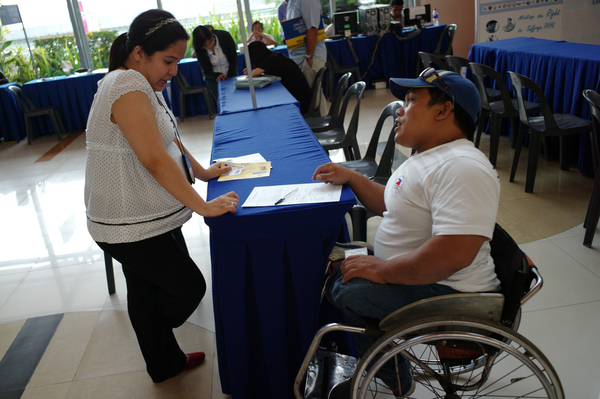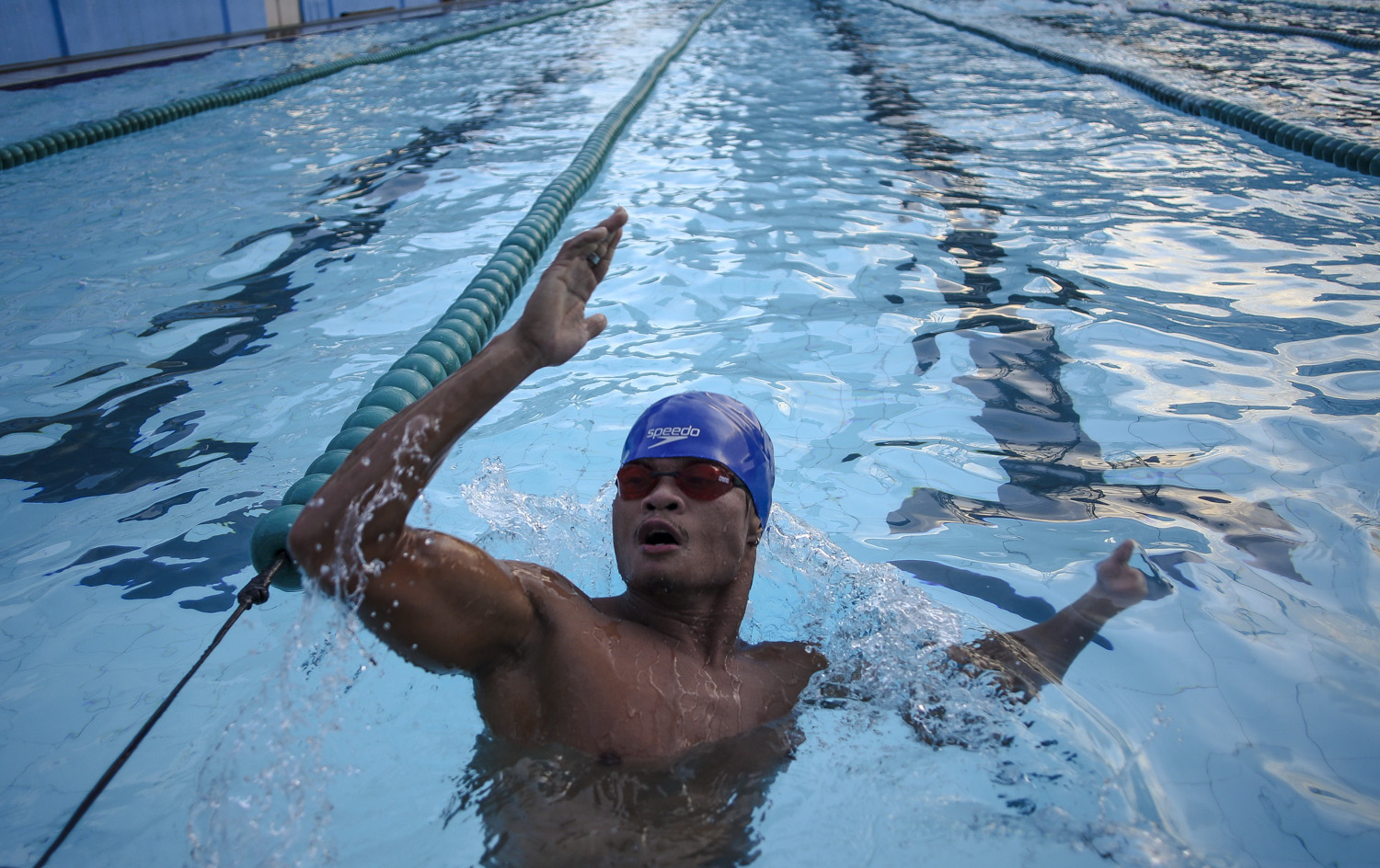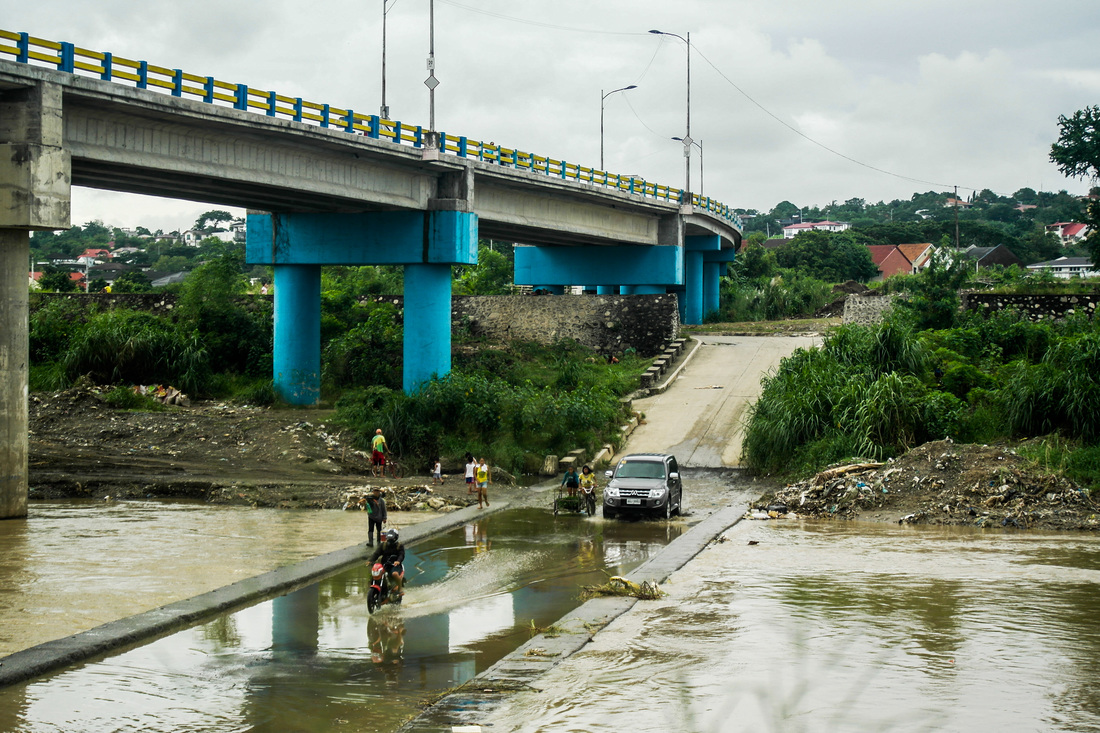
Text by ARTHA KIRA PAREDES
Video by VINCENT GO
The Commission on Elections is holding this month special registration for persons with disabilities (PWDs) in the Visayas who are qualified to vote in the 2013 midterm elections. This is on top of the ongoing continuing voter registration that ends on Oct. 31.
The Visayas-wide registration for PWDs rolled off on March 1 in Lapu-Lapu City in Cebu province with enlistment held at the Department of Social Welfare and Department’s office at City Hall on March 1-2 and at the Caw-Oy Barangay Hall on March 3.
This week, from March 5-9, satellite registration will be in selected municipalities in Biliran province, the first district of Leyte and the first district of Southern Leyte. On Saturday, most towns and cities of Iloilo province, Tagbiliran City in Bohol, Bacolod City in Negros Occidental, and many cities in Cebu province will hold the special registration. (See schedule for the registration dates till the end of March)
REGISTRATION DATES
- Region VI (Western Visayas): Capiz, Guimaras, Iloilo, Negros Occidental
- Region VII (Central Visayas): Bohol, Cebu, Negros Oriental, Siquijor
- Region VIII (Eastern Visayas): Biliran, Leyte, Southern Leyte, Samar, Eastern Samar, Northern Samar
The registration sites, identified as “accessible” to PWDs, are mostly Comelec field offices. They also include DSWD offices, civil and cultural centers, gyms and in the case of Iloilo City, the SM City mall.
The region-wide registration, the first in the country, followed the unprecedented nationwide registration for PWDs conducted during the National Disability Prevention and Rehabilitation Week from July 18 to 23 last year. Satellite registration will be held in Mindanao in April and in Luzon in May.
According to Comelec records, the provinces of Western Samar, Negros Oriental, Leyte, Capiz, Cebu, Northern Samar, Bohol, Antique, Eastern Samar, Aklan and Iloilo are among the top 30 provinces with highest registered PWD voters as of July 2011.
“The holding of the National Voter Registration Week for PWDs is a recognition that thousands of PWDs who are qualified to vote have been disenfranchised due to the inaccessibility of some of our registration areas and even polling places,” said Elections Commissioner Rene V. Sarmiento, who is the poll’s body “focal person” in the Inter-Agency and NGO Network in Empowering Persons with Disability.
In May 2011, Comelec issued Resolution No. 9220 providing not only better accessibility for PWD registrants but also revision of the registration form to gather supplementary data on the type of disability and the form of assistance needed by the PWD on election day.
Comelec has set the following minimum physical requirements for an “accessible” registration site for PWDs:
- PWDs can easily reach the venue by public transportation.
- Ingress and egress to the building or site are accessible. The walkways leading to the site should be wide enough for wheelchair users and is free from obstacles and steps. If necessary, temporary ramps should be installed to make the walkway accessible.
- The walkways leading to the site should be clear of any objects, holes and obstacles so that it is safe for visually impaired persons.
- Clear and large directional signage should be placed in strategic areas.
- The waiting areas for registrants should have space allotted for wheelchair users to “park” while waiting for their turn.
- For wheelchair consideration, the guidelines from the Accessibility Law (Batas Pambansa 344) may be used
The registration form for PWDs asks them to state if their disability is physical, hearing, speech, visual or nonmanifest, which includes autism and attention deficit/hyperactivity disorder (AD-HD).
The form also asks PWDs if they need an assistor, communication assistance, accessibility precinct or visual assistance on election day.
The 1992 Magna Carta for Persons with Disabilities states that PWDs “shall be allowed to be assisted by a person of his choice in voting in the national or local elections.”
The Voter’s Registration Act of 1996 provides that application for registration of PWDs “may be prepared by any relative within the fourth civil degree of consanguinity or affinity or by the Election Officer or any member of an accredited citizen’s arm using the data supplied by the applicant.”
Sarmiento said the government has adopted a “three-pronged electoral approach” in its engagement with PWDs. It is maintaining active linkages with NGOs and connecting with external champions, building champions and friends of PWDs inside Comelec and creating an inter-agency and NGO network on empowering PWDs, he said.
As early as 2010, the first nationwide automated elections, the Parish Pastor Council for Responsible Voting (PPCRV) started reaching out to PWDs by signing a memorandum of agreement with Alayansa ng may Kapansanang Pinoy (AKAP-Pinoy), a federation of some 450 organization of persons with disabilities, PPCRV chairperson Henrietta de Villa said.
But partnership goals were not achieved 100 percent because of “lack of time” and “so many concerns” due to the “newness” of automated elections, she said.
For 2013, De Villa said PPCRV, AKAP-Pinoy and Comelec will implement Project PWeDeng PWeDe to get as many PWDs to register, ensure accessibility for PWDs in the 2013 national and local elections, and enable active participation of PWDs in the functions to be carried out during the elections as PPCRV trainers for voters’ education and poll watching.
The partnership, she said, will feature an added M to CHAMP (Clean, honest, accountable, meaningful and peaceful). She said the concerned groups will aspire for CHAMP+M where M stands for “mapagmalasakit (caring).”
The 2006 United Nations Convention on the Rights of Persons with Disabilities estimated that around 650 million people around the world live with a disability. It called PWDs “the world’s largest minority.”
Based on the 2000 record of the Census of Population and Housing, there are 924,098 PWDs in the Philippines. The World Health Organization, however, estimates that PWDs make up 15 percent of the population in developing countries. This means about 15 million Filipinos.
Under Article 29 of the Convention, PWDs “can effectively and fully participate in political and public life on an equal basis with others, directly or through freely chosen representatives, including the right and opportunity for persons with disabilities to vote and be elected.” The Philippines is a signatory of the convention.
(VERA Files is a partner of the“Fully Abled Nation” campaign that seeks to increase participation of PWDs in the 2013 elections and other democratic process. Fully Abled Nation is supported by The Asia Foundation and the Australian Agency for International Development. VERA Files is put out by veteran journalists taking a deeper look at current issues. Vera is Latin for “true.”)


